Vaccines are something new kitten owners are usually aware of due to the regular frequency of them but as cats age, vet visits and therefore vaccinations start to become less commonplace for cats. If your adult cat doesn't see the vet at least yearly, it can be problematic not only for the health of your cat but also because of legal reasons. Adult cats need a variety of vaccines and just because they don't need them as often as kittens doesn't mean they shouldn't still receive them.
Why Do Cats Need Vaccinations?
Vaccinations are also known as and immunizations provide a cat's immune system with an increased capability of effectively fighting off diseases. Without vaccines, cats are not protected from a variety of potentially fatal diseases that they may come in contact with throughout their lives. One vaccine in particular is also needed due to state laws.
Typical Vaccination Schedule for Adult Cats
Kittens receive their first vaccines at around eight weeks of age and continue getting various vaccinations every few weeks until they are about four months old. After that, they won't need a vaccine until about a year later when they are an adult.
About a year after a kitten has received its last vaccines, it will be time to see the veterinarian for an annual check-up and its vaccination boosters. After that, your cat will still need an annual check-up but the core vaccines will usually only be given every three years. Depending on your cat's lifestyle and risk level, non-core vaccines may also be recommended by your veterinarian and these will still need to be received every year regardless of your cat's age. The exception to this is the rabies vaccine which may need to be given yearly depending on whether or not it is the recombinant or killed type of vaccine.
Core Vaccines for Adult Cats
The American Association of Feline Practitioners (AAFP), the American Veterinary Medical Association (AVMA), and the American Animal Hospital Association (AAHA) recommend certain vaccines be given to all cats regardless of their exposure risk. These vaccines are typically given every three years to adult cats that received them as kittens. Because cats are prone to developing tumors at injection sites, vaccine frequency should be minimized but minimization should not be misinterpreted as avoidance. This is why it is important to follow your veterinarian's recommendation for the vaccination schedule that is best for your cat.
- Rabies: Not only is rabies fatal in almost all unvaccinated animals that are infected with it, but the vaccine is also required by most state laws for all cats over the age of six months. This is because rabies is a zoonotic disease and can spread to humans. Even if your cat is an indoor-only cat, rabies can be contracted if a bat gets into the house or if it escapes outside and is exposed to a rabid animal. A rabies vaccine may need to be administered yearly if a recombinant vaccine is used or every three years if a killed virus vaccine is used.
- Feline Herpesvirus 1 (FHV1): Part of a combination vaccine, FHV1 causes respiratory and ocular issues in cats. It is administered every three years in adult cats.
- Feline Calicivirus (FCV): Part of a combination vaccine, FCV causes severe respiratory and ocular issues as well as oral sores and occasionally lameness in cats. It is very contagious and a deadly form that causes inflammation of major organs also exists. It is administered every three years in adult cats.
- Feline Panleukopenia Virus (FPV): Also known as feline distemper, FPV is highly contagious and can be fatal. Gastrointestinal symptoms such as vomiting, diarrhea, and inappetance are commonly seen in addition to sudden death. It is part of a combination vaccine with FCV and FHV1 that is administered every three years in adult cats.
Non-Core Vaccines for Adult Cats
Depending on your cat's specific lifestyle, another vaccine may be recommended by your veterinarian. This vaccine is a non-core vaccine because not every cat needs it but if your cat does, it will be needed annually.
- Feline Leukemia Virus (FeLV) - Usually spread through the urine and saliva of infected cats, FeLV causes immune issues and eventual death. It is a yearly vaccine for at-risk cats.
A few other vaccines were occasionally recommended in the past but are no longer commonplace in cats, even if they are at-risk. These include FIP, Bordatella, and Chlamydia vaccines.

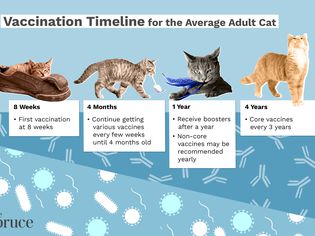
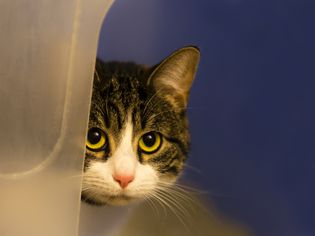
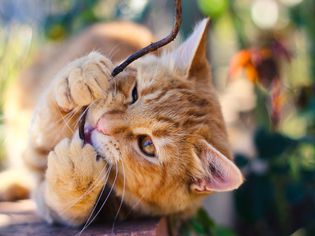
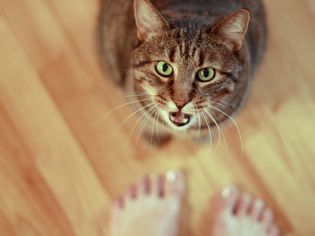
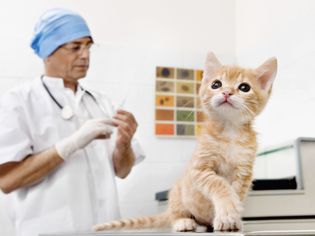
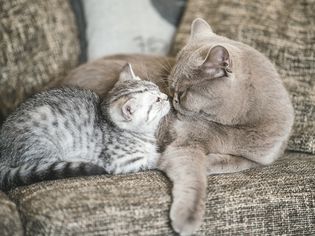
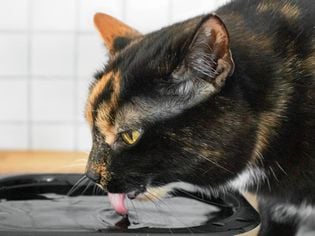
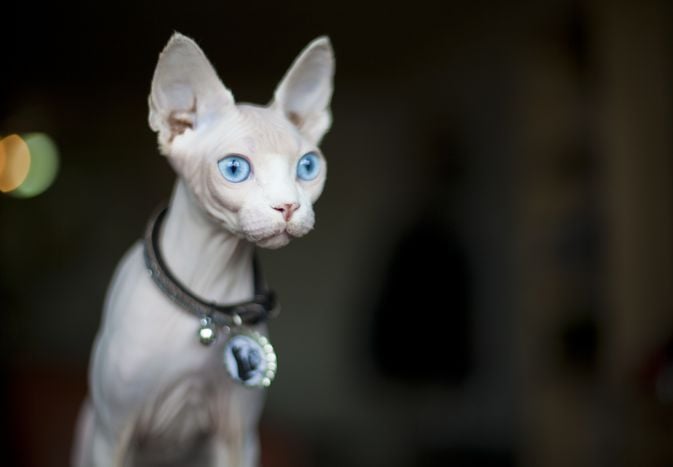

Comments on " The Average Adult Cat Vaccination Schedule" :